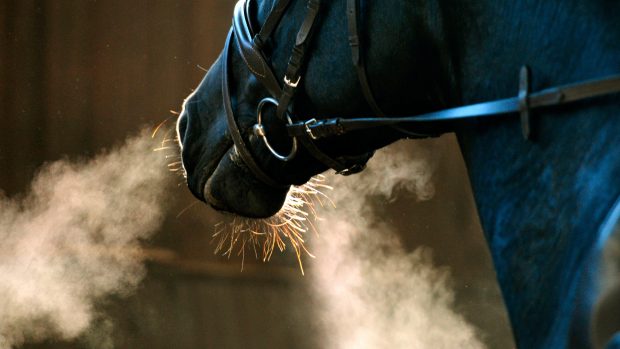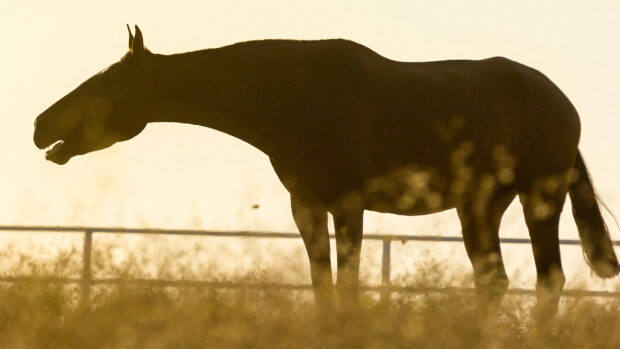Chronic Obstructive Pulmonary Disease (COPD), which is also known by the term Recurrent Airway Obstruction (ROA), is an allergy.
The small airways of the lung are irritated by dust, moulds or pollen resulting in respiratory distress and noise. Because COPD interferes with the free flow of air to the lungs, affected horses often show more severe symptoms during exercise.
Traditional veterinary advice
Solutions to COPD are part-management, part-veterinary. Reducing the amount of foreign bodies in the air which might irritate the lungs is veryimportant, so keep the horse’s environment as dust-free as possible by:
- feed soaked hay or haylage from the ground
- ensure the stable is well ventilated
- turn your horse out regularly or full-time
- use low- or no-dust bedding such as paper or rubber matting.
Veterinary treatment involves increasing the damaged lung’s capacity for gaseous exchange in a similar way to human asthma inhalers. Drugs such as Ventipulmin and Sputolosin help loosen mucus and help the horse clear the discharge. In the short term, administering anti-allergy drugs such as steroid inhaler will calm lung irritation.
Alternative therapies
Herbs such as garlic are antiseptic and expectorant, encouraging the expulsion of mucus, while liquorice is soothing.
Homeopathic remedies might include Bryonia for a dry cough which is worse for movement, or Arsenicum Album for a wheezy cough in a chilly, anxious animal.
Hay or flouve essential oils can be administered internally to reduce the allergic reaction. Alternatively, massage the throat and underside of your horse’s neck with a gel containing one or a combination of the following, depending on your horse’s preferences:
- lavender (anti-bacterial, stimulates the immune system)
- eucalyptus (antiseptic, expectorant)
- yarrow (anti-inflammatory).
For more advice on coping with winter ailments, including rain scald, mud fever and galls, see the February issue of HORSE magazine, now on sale.



